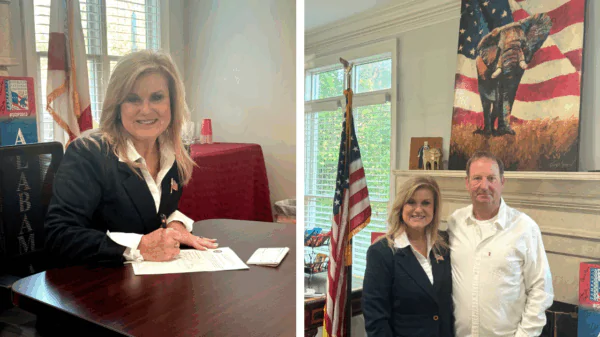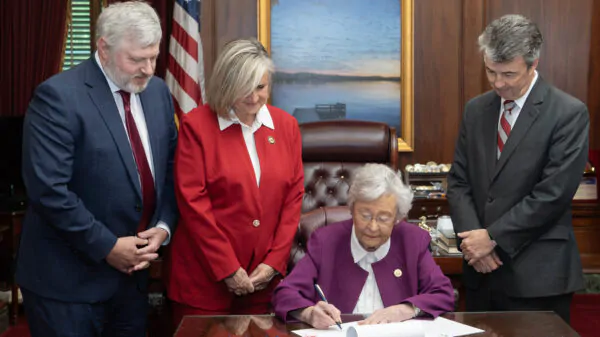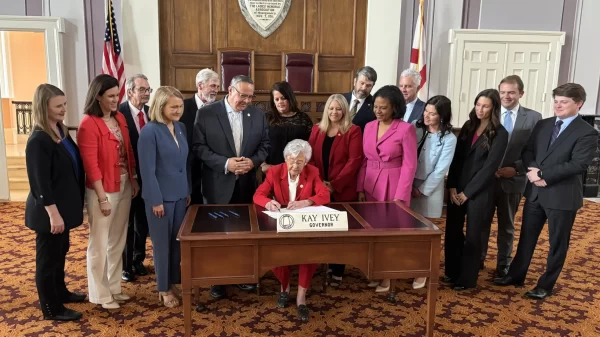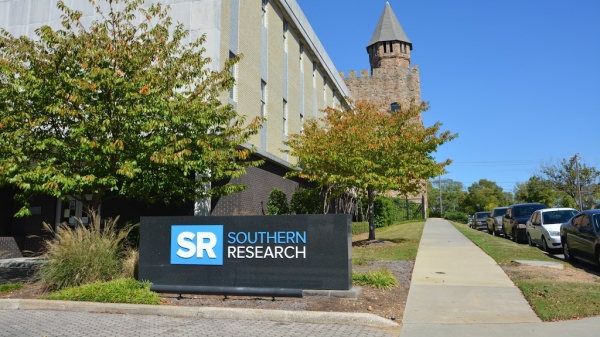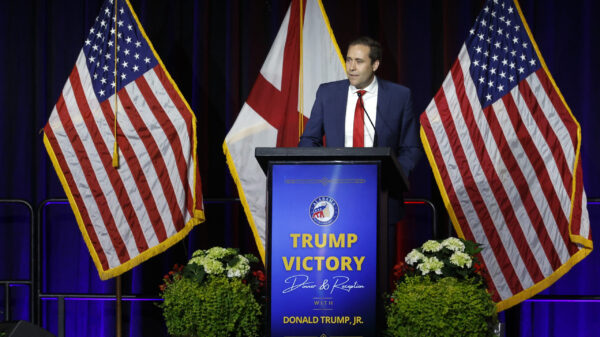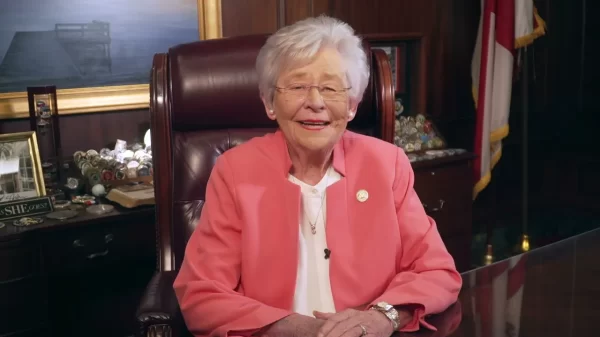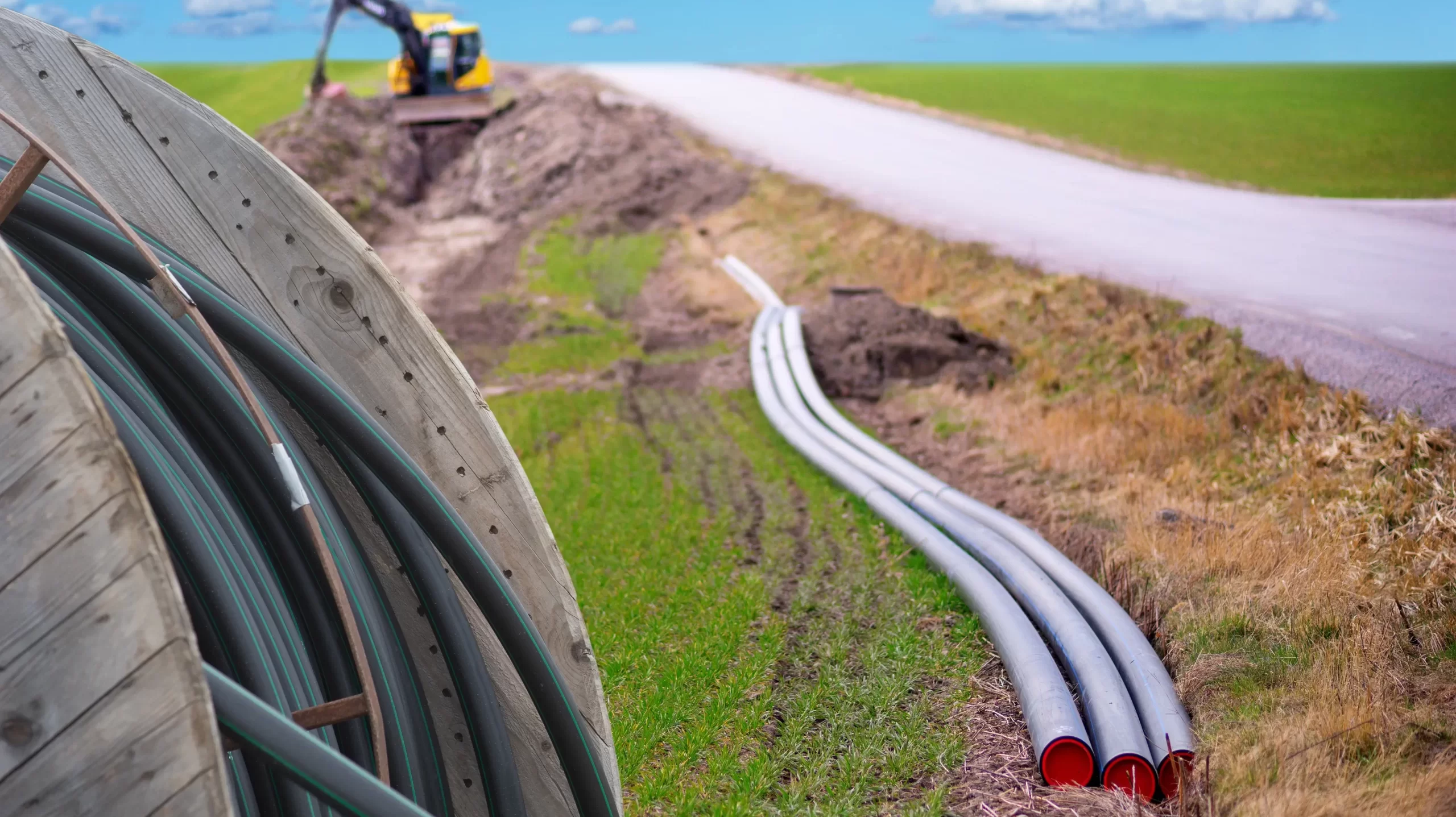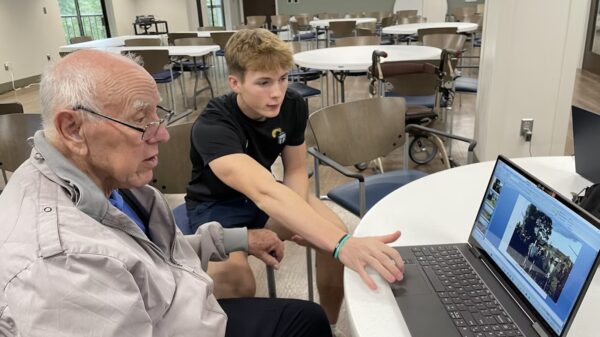On Tuesday, Gov. Kay Ivey announced that she had approved a $53.5 million grant to the Alabama Fiber Network as part of the Alabama Anchor Institution/Middle-Mile Program.
The Alabama Anchor Institution/Middle-Mile Program is an Alabama Department of Economic and Community Affairs initiative that was funded with $245 million allocated to Alabama by the federal American Rescue Plan Act of 2021.
An August 2023 report from ADECA found that “24 percent of locations in the state lack access to 100/100 Mbps service and approximately 12 percent lack access to 100/20 Mbps service.” U.S. News has ranked Alabama’s internet access as 44th in the nation.
ADECA director Kenneth Bosswell called the new grant a “giant step in the long, but attainable process of providing high-speed internet to every corner of the state.”
Ivey said the grant “puts us closer in Alabama to ensuring that everyone has access to this fundamental service.”
According to Ivey, the grant will fund “approximately 1,095 miles of high-speed middle-mile broadband for our communities, and it will connect approximately 120 community anchors, like educational institutions, medical facilities, local government offices and police and fire departments.”
The governor’s office said that “more than 7,500 unserved businesses and residences” will now be within five miles of high-speed internet after the grant money is spent.
Public investment in middle-mile broadband is meant to make it cheaper for internet providers to connect unserved or underserved households to the national network.
The grant will help fund new middle-mile infrastructure in twenty-five counties: Baldwin, Coffee, Colbert, Covington, Dale, Dallas, DeKalb, Elmore, Etowah, Franklin, Hale, Jefferson, Lee, Lauderdale, Lawrence, Limestone, Madison, Marshall, Mobile, Montgomery, Perry, Russell, Tuscaloosa, and Walker counties.
While this specific grant does not fund broadband in some of the counties with the least internet access, according to ADECA’s broadband map, it may still help residents overlooked by previous expansions of broadband.
At a Tuscaloosa town hall on Monday, one Tuscaloosa resident complained about being promised internet access years ago and still not having any.
As a member of the Alabama Digital Expansion Authority board, state Sen. Bobby Singleton, D-Greenville, explained to her that ADECA has been working on expanding broadband access in the state, but had to figure out where the money needs to go first.
“There’s so much federal money that’s been going on, right? So much federal dollars it is getting confusing,” he said, referencing the host of recent federal programs meant to fund rural broadband. Per the senator, the ADEA needed to compile the results of these overlapping programs to figure out who still needs help.
“We’re gonna fill in the gaps to take care of all of those households that everyone else missed,” Singleton stated.


